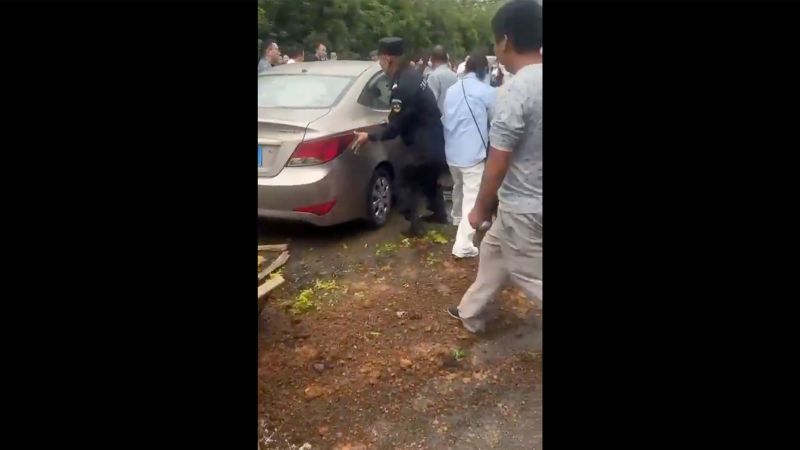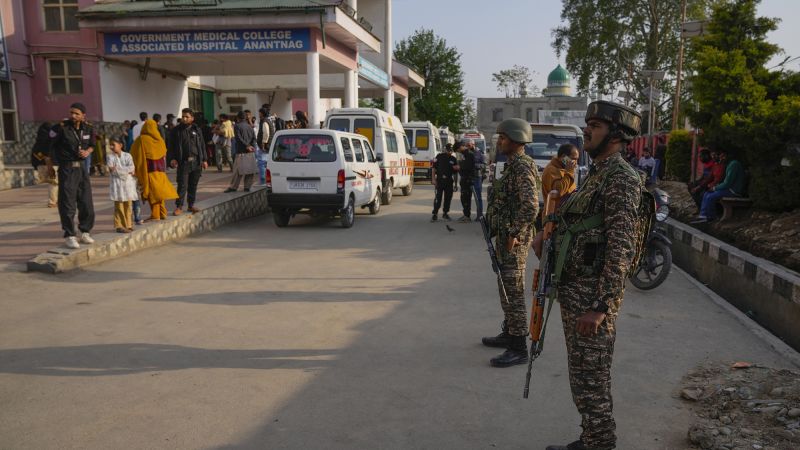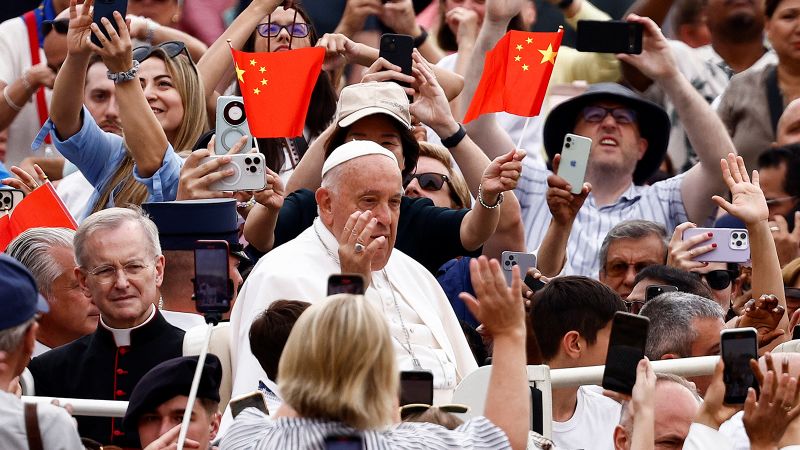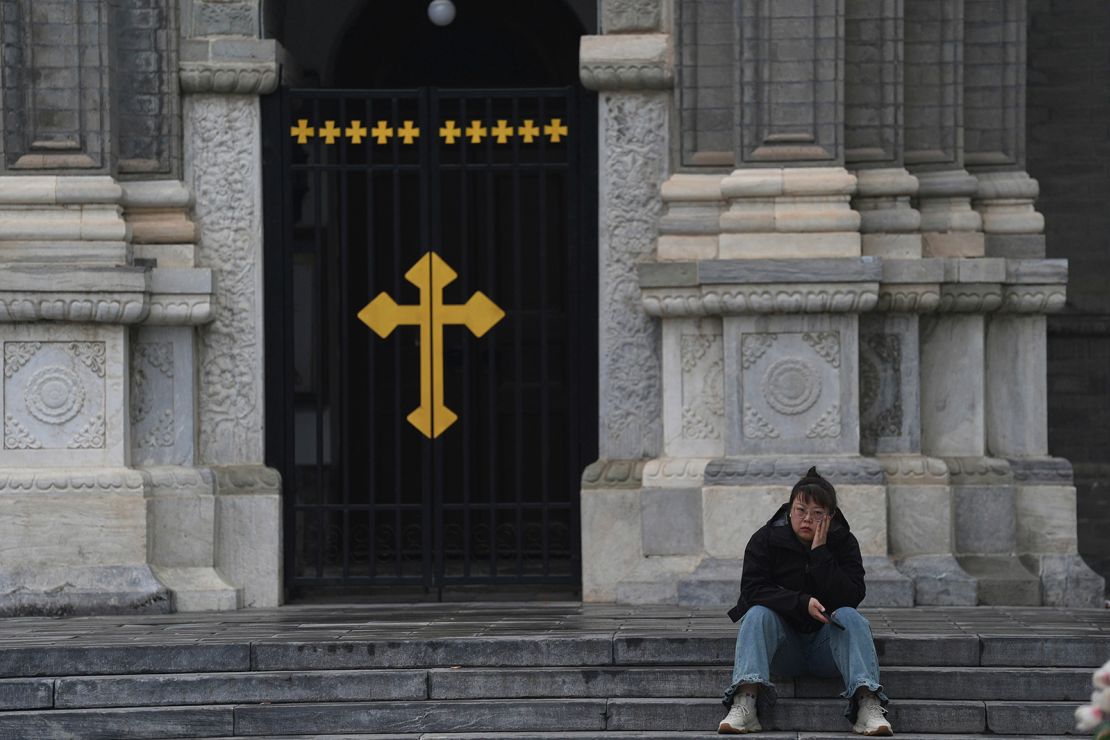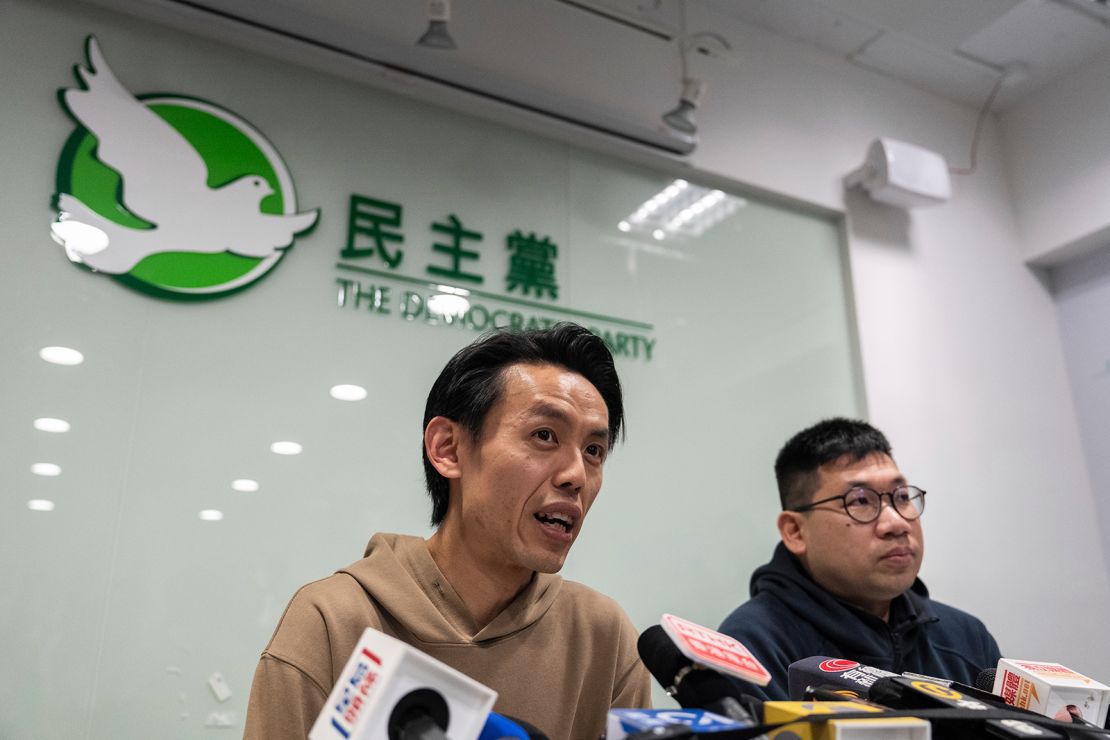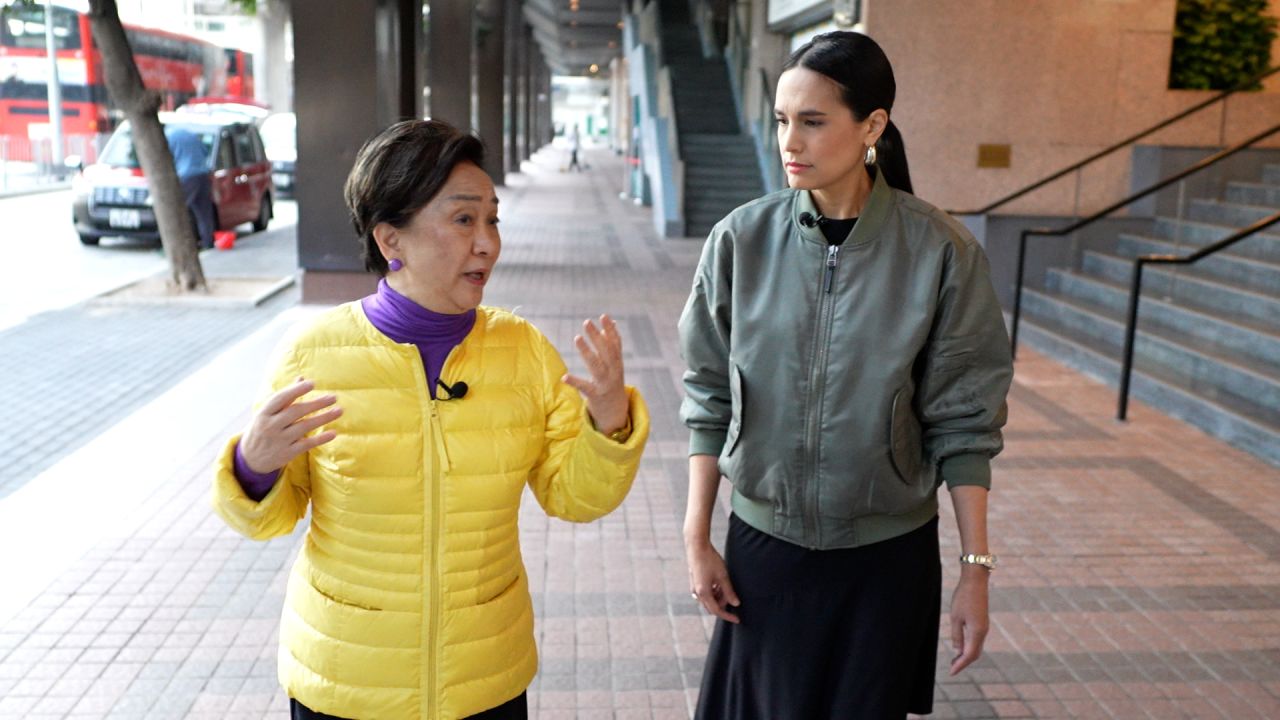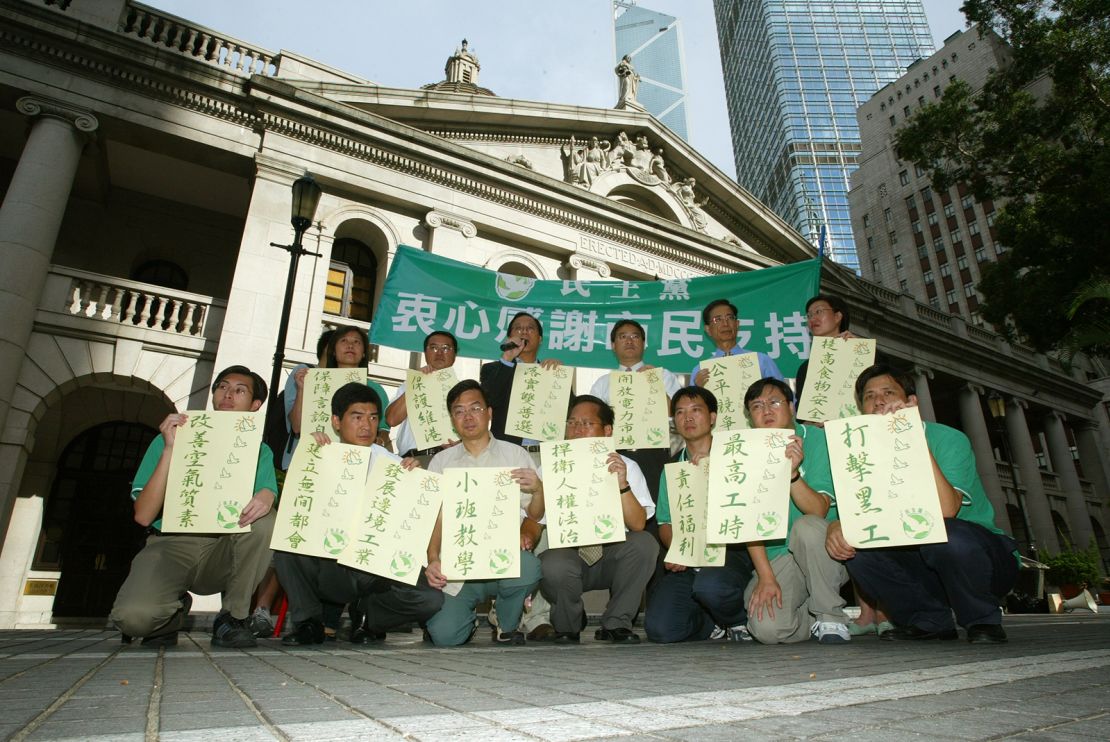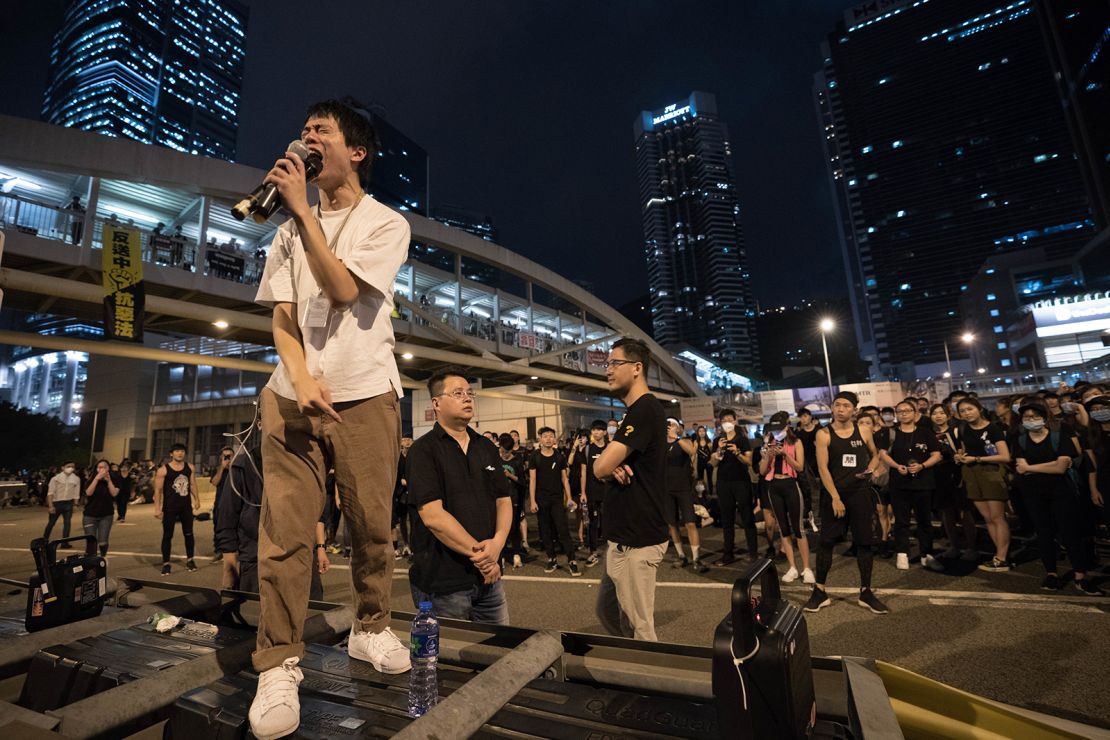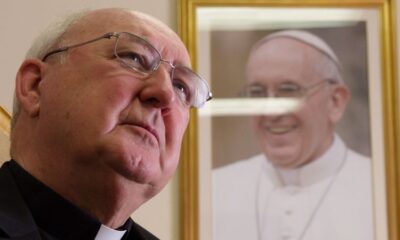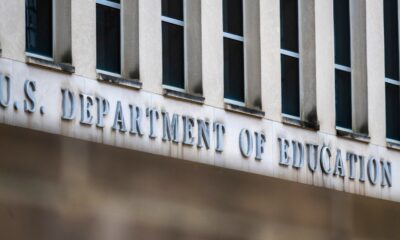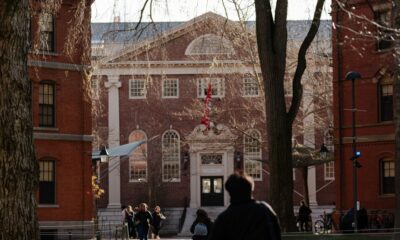Hong Kong
CNN
—
Hong Kong’s oldest and largest pro-democracy political party is moving to disband as Beijing’s sweeping crackdown on the city leaves even moderate opposition groups with no room to operate.
The Democratic Party, one of the leading voices of opposition in the semi-autonomous city for the past three decades, has started the process of dissolution following recent warnings from Chinese government officials, two of its veteran members told CNN.
“The message was that the party has to be disbanded or there will be consequences,” said one of them, Yeung Sum, a former Democratic Party chairman.
Fred Li, a former lawmaker, said a Chinese official told him that the party should not remain until the end of this year, when an election will be held.
Founded by liberal lawyers and academics three years before the former British colony’s 1997 handover to China, the Democratic Party had campaigned for universal suffrage and on matters from labor rights to conservation during a period when such issues were openly discussed in the city.
Widely seen as moderates willing to work with Beijing, Democratic Party leaders had spearheaded a significant voting bloc in the city’s legislature and were regularly afforded space to critique local government policy, until mass pro-democracy protests in 2019 ushered in a new and more restrictive political era.
Beijing’s crackdown in the years since, including the prosecution and jailing of pro-democracy leaders, has left the once-influential party rudderless as it contends with sweeping national security legislation and “patriots only” electoral reforms enacted in 2021 that make it nearly impossible for opposition candidates to stand for the city’s legislature.
Democratic Party chairman Lo Kin-hei told a news conference last Sunday that 90% of about 110 party members had voted to delegate power to a committee to start the dissolution process, adding he hoped a final vote would take place in the coming months.
“I hope Hong Kong’s political parties… will continue to work for the people,” Lo said. “We have always hoped to serve the Hong Kong people, and to do things that are good for society.”
The Democrats’ move to disband demonstrates Beijing’s unwillingness to allow even the mildest of dissenting voices to be heard in Hong Kong, say analysts.
John Burns, emeritus professor at the University of Hong Kong (HKU), said the party had “symbolized the promise of some kind of democratic development in Hong Kong, leading to universal suffrage as promised in the Basic Law,” referring to the city’s mini-constitution.
“A dissolution of the party reflects official Hong Kong’s turn away from popular participation, locally accountable government, and increased transparency toward more authoritarian rule,” Burns said.
Eric Lai, a research fellow at the Georgetown Center for Asian Law, said the Democrats’ move “shows there are no more feasible ways for groups to exist as an opposition party.”
“It’s self-conflicting for the government to suggest that nothing has changed,” he said.
In a statement to CNN, a city government spokesperson said decisions by individual groups “to disband or suspend operation are completely unrelated to the freedom or rights enshrined in Hong Kong law.”
Criticism of the government remains permitted in Hong Kong, “however strong, vigorous or critical” it may be, so long as it is “based on facts,” the spokesperson said. The Hong Kong government would “continue to resolutely discharge the duty of safeguarding national security,” they added.
Hong Kong’s Democratic Party nears its end
Hong Kong’s Democratic Party nears its end
01:41
The Democrats had enjoyed relative political freedom following Hong Kong’s return to Chinese rule, even holding more seats than any other party in the mostly pro-Beijing legislature until 2004.
The party’s leaders were often the figureheads of major demonstrations, including an annual June 4 vigil to commemorate the Tiananmen Square massacre and a well-attended pro-democracy march held every July. (Neither event would be permitted on the Chinese mainland, and both are now effectively banned in Hong Kong).
But support for the Democrats plunged in 2010 after its leaders negotiated directly for universal suffrage with officials from Beijing’s liaison office in Hong Kong – a move seen as a betrayal by other pro-democracy groups.
The party was then pushed further to the sidelines by the emergence of a new generation of pro-democracy leaders and student activists during months-long protests for universal suffrage in 2014.
However, when anti-government demonstrators returned to Hong Kong’s streets en masse in 2019, the Democrats’ popularity resurged as many of its leaders stood on the front lines of the massive – and sometimes violent – protests that rocked the financial hub.
Later that year, the Democratic Party was the biggest winner in local district council elections. But its participation in the protests also drew the ire of Hong Kong authorities and Beijing, paving the way for its demise.
“The party made mistakes when it failed to draw a clear line between itself and radical separatists calling for Hong Kong’s independence from 2014-2020,” said Burns, from HKU. “Authorities have punished the party, jailing and chasing out Democratic Party leaders.”
Over the past five years, the space for the Democrats to maneuver has been increasingly squeezed by Chinese authorities.
In 2020, Beijing imposed a sweeping national security law on Hong Kong, introducing the maximum sentence of life imprisonment for four main crimes of secession, subversion, terrorism and collusion with foreign forces.
A year later, the Chinese government rewrote Hong Kong’s electoral rules to require candidates to seek nomination from pro-Beijing groups, essentially excluding the opposition from elections. A legislature filled with Beijing loyalists last year unanimously passed a law expanding the scope of national security offenses.
Beijing and the Hong Kong government argued that the electoral changes had enhanced democracy and have repeatedly defended the security laws as restoring order and returning prosperity to the city. But critics say they have curtailed freedoms and had a “chilling effect” on civil society, including independent institutions and the media.
Steve Tsang, director of the China Institute at SOAS University of London, said political and social protests seen as challenging state security are “becoming increasingly if not well-nigh impossible.”
“Many other elements of civil rights, including that of speech and organizing political parties have also been severely curtailed,” he added.
Last year, five former Democratic Party lawmakers were among 45 opposition figures sentenced to prison terms of up to 10 years after they were found guilty of subversion for taking part in an election primary in 2020.
National security police have also placed HK$1 million ($129,000) bounties on pro-democracy activists who fled overseas, including an Australia-based former Democratic Party lawmaker accused of secession, subversion and collusion with a foreign country.
Meanwhile, the trial of media tycoon and outspoken democracy supporter Jimmy Lai is ongoing, more than four years after he was detained on charges of colluding with foreign forces, which he denies.
The Democratic Party’s announcement last weekend follows the dissolution of almost 100 civil and pro-democracy organizations in Hong Kong in the wake of Beijing’s crackdown.
The party had tried to survive as a civic group in recent years but struggled to raise funds as multiple private venues canceled their events, often at the last minute.
Former Democratic Party lawmaker Emily Lau said the party’s move to disband was “very sad.”
“We’ve been around for over 30 years, and we’ve got the support of many Hong Kong people,” she told CNN outside court in February, before another former party lawmaker was jailed on charges of rioting during the 2019 protests.
“I don’t know what they are thinking in Beijing. We have demonstrated, not just words, but by action, that we are reasonable. We are willing to talk, to negotiate, to compromise, reach a deal and go forward.”
Source link

